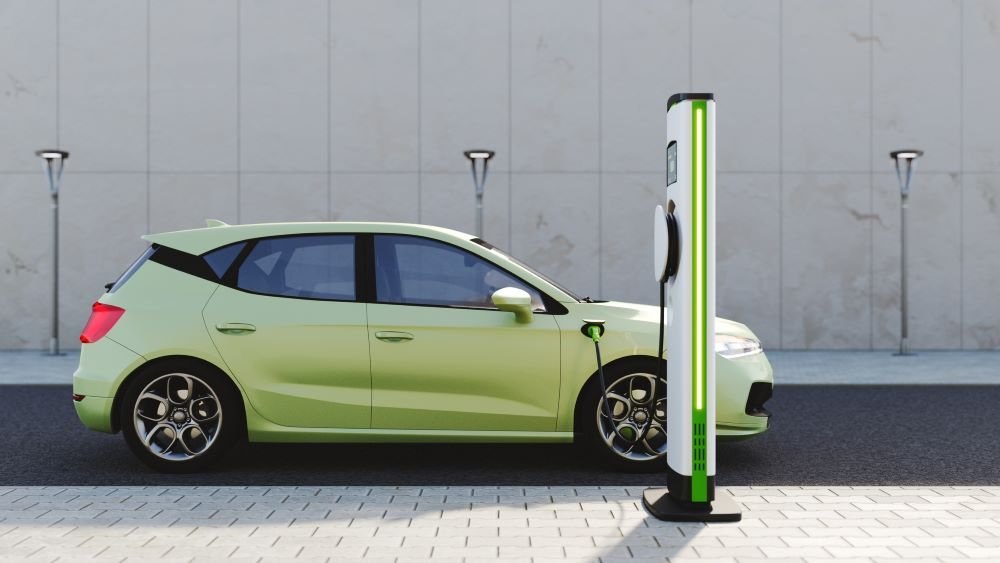
EV adoption in APAC: what financial incentives are likely to accelerate electric vehicle ownership?
From tax breaks to new charging stations and car models, the market for electric vehicles (EV) in APAC is receiving a shot in the arm, following recent developments across the region.
- Indonesia: In April, state electricity firm Perusahaan Listrik Negara tripled the number of EV charging stations along major highways, after the government announced tax incentives for EV owners in February.
- Hong Kong: In March, Xiaomi – previously known for its smartphones and smart home appliances – began delivery of its first EVs in March and saw a significant uptick in consumer chatter towards the brand over the same period.
- Australia: In February, the Labour government unveiled fuel efficiency standards for new cars (poised to come into force from 2025) aimed at boosting the supply of low to zero-emissions vehicles – which include EVs – over heavy-polluting ones.
- Singapore: Between January to April, the Land Transport Authority launched three short cinematic films to raise awareness about the ready infrastructure support for EV adoption, as part of its national ‘Power EVery Move’ campaign.
While these moves should encourage more drivers to go electric, consumers looking to buy a new automotive – a big-ticket item – are likely to have financial considerations top-of-mind when choosing between an electric versus gas/petrol-powered vehicle.
Now, latest YouGov Surveys research homes in on the incentives that consumers in key APAC markets say would make owning EVs more financially attractive.
Indonesia
Reducing the upfront cost of buying an EV and subsequent operating expenses are most likely to encourage drivers in Indonesia to go electric.
More than two in three (68%) say government incentives and subsidies on EV purchases will make owning EVs more financially attractive, just ahead of extended warranty and maintenance packages (66%) and reduced charging costs (65%).
Longer term considerations, such as higher resale value of EVs (63%) and lower battery replacement costs (61%) would make EVs more affordable, are next most attractive, while half also want to see reduced insurance costs (50%).
Less than half, however, say tax credits for installing home charging equipment (45%) and more leasing options (39%) would make EVs more appealing cost-wise.
Singapore
Making it cheaper to maintain and buy an EV is most important to drivers in Singapore thinking of making the switch away from ICE vehicles.
Lower charging and (locally compulsory) insurance costs (both 66%) will appeal to the largest proportion of consumers, followed by government incentives and subsidies on EV purchases (65%) and extended warranty and maintenance packages (64%).
Drivers are next most likely to say incentives that reduce to mid-term or end-of life costs like a fall in battery replacement costs (62%) and a rise in the resale value of EVs (60%) would make driving electric more affordable.
But just half say tax credits for installing home charging equipment (51%) and more leasing options (50%) would make EVs more appealing cost-wise.
Hong Kong
Reducing the upfront cost of buying an EV and subsequent operating expenses are most likely to encourage drivers in Hong Kong to go electric.
Three in five say government incentives and subsidies on EV purchases will make owning EVs more financially attractive – ahead of extended warranty and maintenance packages (58%), reduced charging and insurance costs (both 57%).
Longer term considerations like reduced battery replacement costs (56%) and increased resale value and tax credits for installing home charging equipment (both 54%) are next most appealing, but less than half would be excited to find more leasing options (45%).
Australia
Making it cheaper to maintain and buy an EV is most important to drivers in Australia thinking of making the switch lower-emission vehicles.
Reduced (mandatory) insurance costs (61%) appeal to the largest proportion of consumers, ahead of lower charging costs and government incentives and subsidies on EV purchases (both 59%), in making EV ownership more financially attractive.
Close to three in five also say a fall in battery replacement costs (58%) and extended warranty and maintenance packages (57%) make owning EVs more affordable, while around half would appreciate a rise in EV resale values (54%) and tax credits for installing home charging equipment (53%).
But less than two-fifths of consumers say more leasing options (38%) make EVs more appealing cost-wise.
Methodology: YouGov Surveys: Serviced provides quick survey results from nationally representative or targeted audiences in multiple markets. The data is based on surveys of adults aged 18+ years in 17 markets with sample sizes varying between 510 and 2,044 for each market. All surveys were conducted online during January 2024. Data from each market uses a nationally representative sample apart from Mexico and India, which use urban representative samples, and Indonesia and Hong Kong, which use online representative samples. Learn more about YouGov Surveys: Serviced.
Cover image by piranka
